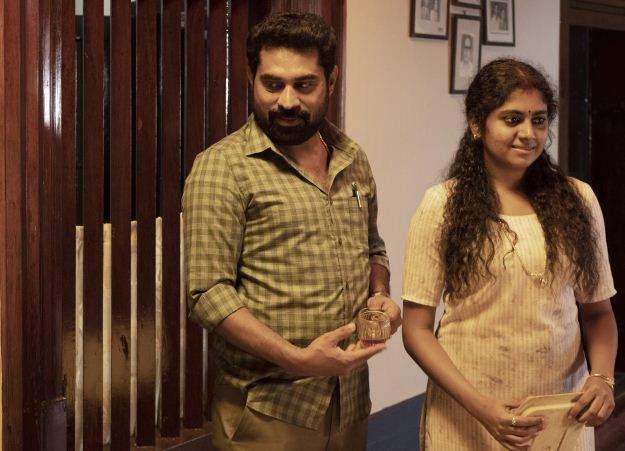Starring Nimisha Sajayan and Sooraj Venjaramudu as newlyweds, the film sees patriarchy as the basis of institutions of family and religion.

Directed by Jeo Baby, The Great Indian Kitchen (which also does a cameo in the film) wants to shatter the idea. The film begins with ‘Thanks Science’, which is different from most Malayalam films, thanking God in the credits. And there is a good reason for this.
If the hypocrisy of religion is broken through the eyes of a devout Christian homegrown child in Jeo Baby’s earlier film Kuju Dayam, The Great Indian Kitchen looks at it from the point of view of a young woman in a new marriage. The film begins with the soon-to-be bride (Nimisha Sajayan) dancing, even her family preparing for the arrival of the groom (Sooraj Vanjaramudu). The pudding is sliced, the banana fritters are fried, the apps are made – and the camera focuses on the hands that perform this labor.
That is a recurring shot in the film; It may seem repetitive until the women are handcuffed, grinding, cleaning, wiping, sweeping but it seems as if Jeo Baby wants the viewer to feel the exhaustion of that endless cycle. The characters have no names, perhaps because there is nothing unique about this story. It is so common that the style of filmmaking is like a documentary. There is also no background score; What we hear is the voice of women’s work that winds up as men go about their self-important routines.
Nimisha’s character is all smiles and smiles on her face as she sets foot in her matrimonial home. When she asks her mother-in-law about the side dish for the dosa, the latter says that in their house, they need to make sambar and chamandhi and Chamandi needs to put her hands on the ground because the father of the house. , Father- sister-in-law, only likes it. The daughter-in-law says that in her ancestral house, they make only one side dish, either this or that.
There is nothing that stands out in conversation; It is a small thing that is common in the kitchen. Mother-in-law is not the stereotypical, disturbing variety (she is actually a colleague’s thing). Comments are not made with any undertaking. But it is only the foothills of the mountain of the house that the young woman soon finds herself.
Sooraj and Nimisha have previously played the role of a husband and wife in the critically acclaimed Thondimuthalam Chalakshakshuyam. There too, they were newly married, but a couple fell in love and went against the norms to get married. In The Great Indian Kitchen, he plays a couple in an arranged marriage, with whom he settles into his old-fashioned but prominent family.
It goes without saying that both artists are brilliant. The suppressed anger of the wife, hurting at the instigation of the husband, her resentment – Nimisha does all this, in part. Husband as Suraj is oblivious to her feelings, teases when you feel like reaching through the screen and giving him a good shake.
He is a near-mirror image of his father, a man who expects his wife to apply toothpaste on her brush and gives it to her in the morning as he rests on an easy chair. The father follows modern, labor-saving machines – and why not, when women work like machines for him? Interestingly, neither man is physically violent; Even when they disagree and put women down, they do it with a sweet smile. This is why The Great Indian Kitchen is different from the average film on unhappy marriages. Domestic violence is not a matter of life and death. Nevertheless, they are, ultimately, issues that drive women out of life, inch by inch.
There are many moments in the film that show what a good observer G.O. Baby is. When the mother-in-law visits her daughter, she is overcome by her husband’s eyesight; The little girl who is made to eat with her mother while the men dine with the guests; Annoying request for two types of tea; Call to plumber which is never done; Pictures of happy couples seemingly on the wall, generation after generation … nothing exaggerated, nothing written. But you understand how fundamentally patriarchal the family is; How women’s voices reverberate in the background, even when they are screaming.
